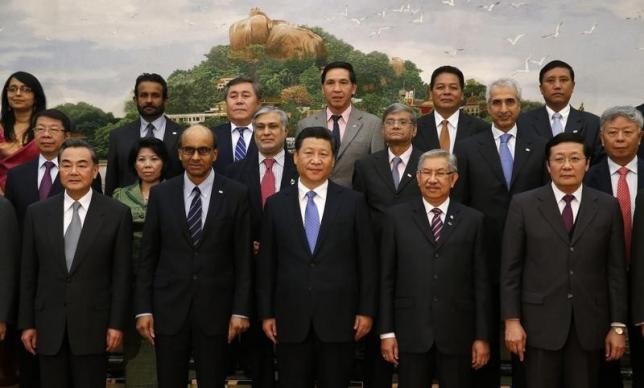The president of the 57-member Asian Infrastructure Investment Bank, Jin Liqun, said that China has no intention to exercise its veto power with its right based on economic size.
Jin said: "There are still many countries on the waiting list, and when the new members join, China's voting power will be reduced. Such de facto veto power will be lost gradually."
The president gave this statement at the annual meeting of the World Economic Forum in Davos last week, according to China Daily.
Member countries of the AIIB, which was established after two years of negotiations, agreed on a vital decision-making procedure. They introduced a "fixed" special majority, made up of two-thirds of members, and representing three-quarters of the voting power.
Jin acknowledged that China is the largest AIIB shareholder with 26.6 percent of the voting power. He added, "We will not increase the special majority to keep China's veto power in the future."
The chief said that this is a major contrast to prior institutions like the World Bank, where the United States has maintained its veto power by amending the articles of agreement. The move increased the special majority when its voting power was reduced after new members joined.
Speaking to the publication, Jin said that when China proposed the idea of establishing the AIIB, there were many doubts and concerns, but the bank is now acceptable in many countries.
Jin said, "This is the process of China gaining credibility and building up mutual trust by collective consultation and making decisions on democratic approaches."
However, he pointed out that the inauguration of the bank is only the first leg of a long journey and that the most significant aspect is to recruit members of staff to make his words become true by meeting the infrastructural demands of states in need.
While the bank is yet to commence recruitment of staff members, the chief aims to seek between 100 and 150 professionals globally this year.
"There is no rush to expand and we need to look for qualified talent and experts carefully," he said.
As opposed to the Asian Development Bank and the World Bank, which have sometimes established offices in diverse countries, the AIIB will require the experience of the private sector and assign experts and staff members in each business category.



























